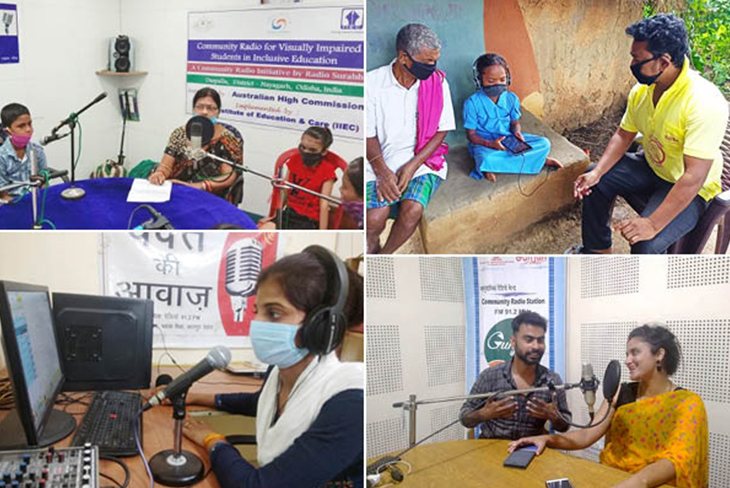Community radio has always played an important role in reaching out to communities with information relevant to their respective local contexts, pertaining to a variety of issues including building livelihoods, advancing justice, empowering women and strengthening education. This popular medium of communication has also been very beneficial in times of emergency response, especially in rural areas that otherwise have limited or no access to mainstream and new forms of media. Amid the COVID-19 pandemic too, community radio came forward to help communities with information on how to contain the spread of the virus and access the various services and entitlements.
Together with Young India and Radio Namaskar, we brought out a publication, ‘Community Radio for Change’, capturing the best practices of community radios through 42 case stories from 24 states of India. This also included the support extended to communities during the COVID-19 crisis. The publication was released by Er. Tusharkanti Behera, Hon’ble Minister, E & IT, Sports & Youth Services, Government of Odisha; Dr. Amar Patnaik, Hon’ble Member of Parliament (Rajya Sabha); and Mr. N. A. Shah Ansari, President, Community Radio Association, India as part of a webinar on December 23, 2020. Radio Namaskar, based in Puri, Odisha, ran a campaign, ‘Say no to Corona’, with 100 radio episodes to empower local communities with information on how to prevent the spread of COVID-19. Capacity-building of 120 radio listener groups was done and they subsequently played a crucial role in awareness generation, focusing on a variety of issues including the condition of migrant labourers, violence against women and child marriage. Community radios also worked closely with the government to facilitate support for community members. Radio Surabhi in Nayagarh, Odisha, during the pandemic, ran an initiative, Sikshya Surabhi, as part of which special education programmes were designed and broadcast for visually impaired students. In Dharamshala, Himachal Pradesh, Gunjan Radio was broadcasting 12-hours live programme and 12-hours recorded programme to keep people informed about the situation of the pandemic. They also created a WhatsApp group comprising local government officials and volunteers. As the volunteers placed people’s issues on the group, the local authorities were working towards addressing the same. More than 150 people were supported during the lockdown.
Similarly, Lalit Lok Vani in Lalitpur, Uttar Pradesh; Waqt Ki Awaaz in Kanpur Dehat, Uttar Pradesh; and Alfaz-e-Mewat in Nuh, Haryana ran innovative COVID-19 response programmes. These radio stations helped communities with detailed information on how to prevent infection, the various government services and schemes available and details of various helpline numbers. Live phone-in shows were organized to address people’s wide-ranging queries. You can read the entire publication here.

